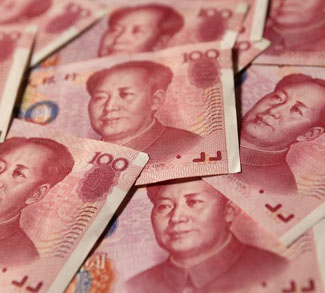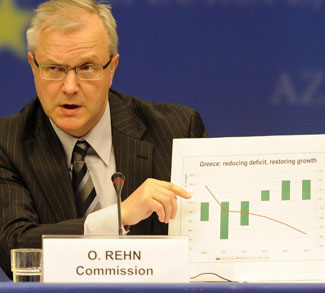FORECAST
The recent passage of a US law that allows for the executive branch to enact trade sanctions on China for currency manipulation stands as a clear sign that the Obama administration is getting serious about the value of the yuan.
In a rare display of bipartisan spirit, the bill easily passed through the House of Representatives thanks to the support of 99 Republicans. If it makes it past the Senate and is signed into law, the bill will grant President Obama the power to unilaterally impose tariffs on any Chinese imports into the United States. Whether the law actually makes it through the Senate is up in the air, though it should be noted that this issue carries a lot of water with the American electorate. China’s monetary policy is widely perceived as blight that is extending the economic misery of the 2008 global financial crash, and more than a few senators will consequently find it politically expedient to support the bill.
Even if the bill makes it into law, it’s highly unlikely that the Obama administration will exercise its new-found powers unless the Chinese government forces its hand. There is also the problem of a potential challenge via the World Trade Organization; a body that doesn’t recognize currency manipulation as license to apply punitive sanctions. The bill’s importance is mostly symbolic in nature. It stands as a warning to the Chinese government to free up the yuan or face a potential currency war.
At this point the Chinese government will step in and offer up its own symbolic gesture, perhaps in the form of public lip service on the need for the yuan to appreciate or even allowing the currency’s value to go up a tick. Unfortunately, the time for token gestures may be over, as intervention in currency markets is on the rise around the world and several governments are pointing to China for their justification.
There are two reasons to expect more currency intervention by national governments over the short to medium term. First off, competition for global export markets is extremely heated because of the stagnant growth of domestic consumption in Western economies. Since a devalued national currency helps boost the competitiveness of exports, currency intervention has become an appealing economic tool in the eyes of governments around the world.
The second reason we should expect widespread currency intervention is simple: the stigma has faded and more and more governments are willing to intervene in currency markets to insulate their domestic economy. Tokyo recently moved to unilaterally devalue the yen, the first time it has done so since 2004. Brazil’s central bank has been buying 10 tens its daily average of American dollars in an effort to stymie any appreciation of the real. Now that Japan has intervened to cool off a spiking yen, another export-dependent country in South Korea is openly considering its own intervention. Such is the spiral that can fast turn into a currency war: when some countries are perceived as not playing by the rules, all players involved become far less inclined to sacrifice for the greater good of the wider global economy.
The road towards widespread protectionism after the Great Depression followed a distinctly similar path.




